Solar power is the ultimate renewable energy source whether you're an eco-minded consumer or practical individualist. The sun's light is sustainable energy that provides a resource that is renewable and has a very low carbon footprint. Solarhome is a premier provider of reliable, durable, proven photovoltaic systems from leading manufacturers, allowing you to harness this free energy alternative. Our grid-tie and battery backup options mean those cloudy days and long nights won't leave you without electricity. Off-Grid PV System,Off Grid Solar,Solar Photovoltaic System Yangzhou Beyond Solar Energy Co.,Ltd. , https://www.ckbsolar.com
The story of broadcasting and TV is always long, complicated, and lost.
Earlier this week, Sina Certified “IT Tech Mania†and “The Internet of Things†successively posted on Weibo. The General Administration of Press, Publication, Radio, Film and Television sent an emergency notice to the seven licensees on July 7, requesting them to target Internet TV. The existing violations have been rectified, and it can be said that most of the Internet TV and box products are covered. The fundamental purpose is to completely shut down the on-demand video portal in addition to the broadcast control platform.
Until now, SARFT officials, licensees, and Internet content service providers have not given an accurate reply to Lei Fengnet. In the process of deciphering, we tend to think that the source of this news has been amplified. However, Internet TV supervising Normalization, contraction, and compression of the gray zone are beyond any doubt.
At the time of further pushing forward, when Xiaomi LeTV tore down Zheng Xiao, Xiaomi pulled out of the SARFT town field, claiming that LeTV did not reflect the cooperation with the licensee. At that time, the industry’s comments were quite interesting. Some people think that Xiaomi’s practice is not Decent; Some people think that Xiaomi cooperates with more than one licensee, and this also violates the rules; others also think that it is really “fragmentation and urgency.†In any case, there is a key information point, Xiaomi and Leshi, based on or The subversive is the "No. 181 Radio and TV Article" of the Internet TV industry. 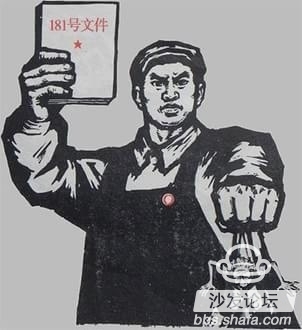
It's a good time for you to listen to the story quietly. Let's talk about the past and present life of No. 181.
What is the TV market before "Document 181"?
When cable TV and home broadband were still two family members (about a dozen years ago), the cable TV broadcasting fee could be watched by the General Administration of Radio and TV. The broadband Internet access and multimedia content browsing through the Internet were assigned to the Ministry of Industry and Information Technology. Time flies, with the development of the Internet, the two big brothers gradually began to "close contact."
The rise of triple play and the emergence of Internet-connected TVs 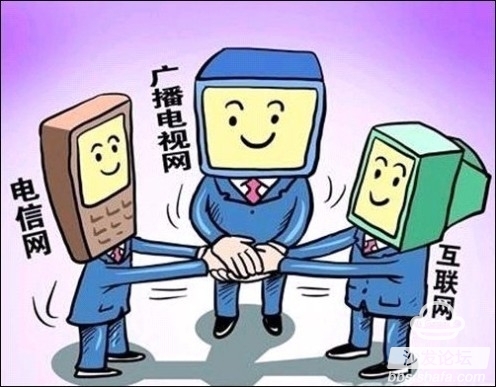
The development of the Internet, especially broadband networks, has gradually begun to increase. Video sites have gradually emerged as channels for people to acquire information and entertainment. In 2010, the triple play policy was introduced. At this stage, the power of SARFT was touched. In addition to China Telecom, which has launched IPTV services in some regions, TV terminal manufacturers have already tried to deploy front-end services through the Internet-enabled function of TV terminals. The platform formed an end-to-end service. During this period, the machine card separation technology began to have some applications.
However, at this time, Internet TV was dominated by concepts, and the ability of related interest appealers, including TV manufacturers, was not as good as that of traditional TV stations and cable networks.
"Computer watching video" and "TV watching" are still significantly different; Internet video at this time is mostly on-demand, influential and coverage, and is not the same as TV content. At this time, Internet video content is still under the jurisdiction of the Ministry of Industry and Information Technology, and you only need to apply for a license for Internet audio-visual content to be able to do video websites.
However, TV boxes and smart TVs have emerged 
In January 2010, Google produced Nexus One, the first Android phone of its own brand, and then the Android system became popular gradually. TV companies also found a better tool. Due to Android's open source freeware and developers' rapid follow-up, it brought a once-end-to-end “stand alone†upgrade to platform operation for the TV product form. Video websites and various applications can be developed through APK. Can be loaded on the TV.
The set-top box for the Android operating system has also begun to appear. TVs have evolved from the original Internet-enabled TVs to smart TVs, and the experience has also been greatly improved over previous Internet TVs. This also means that the SARFT and the Ministry of Industry and Information Technology are just like this, and it is no longer possible to distinguish between you and me.
In 2011, the former General Office of the State Administration of Radio, Film, and Television released the requirements for the operation and management of an Internet TV license agency, namely the well-known No. 181 Document, which regulates the business, content, and operations of Internet TV. Such as:
· The Internet TV integration platform can only choose to connect to legal content service platforms set up by the Internet TV content service agencies approved by the SARFT. Before providing access services, the Internet TV integration organizations should review the legality of the Internet TV content service platforms. (The seven broadcasting and broadcasting platforms approved by Radio and Television are all state-owned broadcast and television broadcasters, including China Internet TV, Best Connect, Hua Digital Media, Hunan Broadcasting, Southern Media, China International Radio, and the Central People's Broadcasting Station. Watching the video can only be done in cooperation with 7 "princes" to establish a joint venture, content review, provision of technology, hardware and software, and various other support.)
· The Internet TV integration platform cannot link with websites set up on the public Internet. Content on the public Internet cannot be directly provided to users. (Connect to the Internet, what else does this TV do with me?)
· The content of programs broadcast on the Internet TV Content Service Platform should be consistent with the programs broadcast on the television stations in terms of censorship standards, standards and management requirements, and should have the rights to broadcast television. "(Please come to the grandfather to see what the "Cocoon Men")
In short, the general principle is:
If the Internet wants to integrate television, it must cooperate with the above seven companies. Non-cooperation is illegal and illegal.
Intensified by repeated orders, in 2014, all boxes and smart TVs on the market began shutting down TV content broadcast services. Manufacturers began to cooperate with only seven broadcast control platforms.
In this way, radio and television only need to manage seven broadcast control platforms, and management effectiveness can cover the entire Internet television industry.
In addition, it is worth noting that the charm of Document No. 181 is that in the long years after this, the No. 181 document has returned to people's horizons and continues to ferment. In this regard, Lei Feng network reporter's assessment of it is: At that time there is a certain role in the combination of blocking, and now, hehehehe. 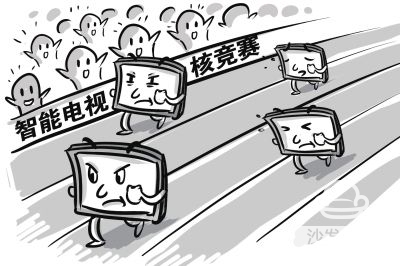
Those in the days of Internet television
In 2011, No. 181 was published until 2013, and Internet TV entered the reclamation period.
what.
The speed of the Internet continues to increase, and the performance of the mobile phone tablet continues to grow. It is increasingly convenient for people to enjoy video over the Internet. On the hardware, any mobile phone or tablet can connect to the TV to watch videos. On the software, various video sites are bought out. The resources of the television station can already be used to broadcast the same programs as the television, and even launch a live broadcast service. At this time, a large number of TV users switched from the wide network to the Internet.
LeTV's smart TV and box began to be listed. In September 2013, it became the release month of smart TV.
What is even more powerful is that Shanzhai Box has risen in an all-round way, and has even become the main force in the 2013 Internet TV set-top box shipments, with a share of more than 80%. Many of these copycat boxes have no relevant authorization in terms of hardware and software. There are no copyright licenses for content, and even some self-hosted servers or hotlinks provide live streams that are prohibited by Article No. 181, and channels that transmit pornographic content outside the country.
In 2013, shipments of all internet TV set-top boxes reached tens of millions, and less than 20% of them cooperated with licensees. The 181th Text is just a normative document of a ministry. In the process, it is precisely facing the integration of SARFT and the General Administration of Press and Publication after the two sessions. Therefore, the copycat box grows wildly in this time window.
History gives them a chance to make money stage by stage.
At this stage, the No. 181 document has become somewhat incompetent. 
NOW Radio has seized the power of Internet TV management
In 2014, mainstream media reports pointed out that the new version of the Internet Information Service Management Measures will be introduced soon. The revised version of the Internet Information Service Management Regulations promulgated in 2000 is the State Council Decree No. 292. The report pointed out:
"The new version of the Internet information service management approach is expected to increase its efforts in two areas:
The first is to increase the strength of the Internet's anti-monopoly and to strengthen supervision over the monopoly of Internet giants such as Tencent, Baidu, Alibaba, and 360. In some areas of Internet information services, it is necessary to protect the interests of SMEs and prevent oligopoly;
The second is to improve content supervision, crack down on piracy, and strengthen law enforcement on pirated products and pirated companies that do not meet content regulatory requirements or whose content has not been reviewed by the content broadcast licensee. The New Deal will severely punish the copycat box and cyber content piracy platform, which will help improve the market share and competitiveness of content licensees or content information providers who cooperate with licensees. â€
Zeng Jianming, CEO of China-Canada, pointed out that the core of the revision of the 292 order should be to categorize and categorize Internet TV as a radio and television service.
With the Ministry of Industry and Information Technology in the "power game" in the field of Internet TV, the SARFT has already seized real power.
For an important industry such as Internet TV, the normative documents issued by the General Office of the General Administration of the People's Republic of China are obviously not sufficient in height and intensity. The No. 292 document has greatly improved the level of documents.
Since then, SARFT has issued a series of supplementary notices ([2014] No. 2) on further improving the management of networked audio-visual programs such as online dramas and micro-movies, and a notice on the further implementation of on-line overseas TV drama management regulations (Xinguang Broadcasting Corporation [2014] No.204), a series of specifications (and constraints) were placed on the content of Internet video. 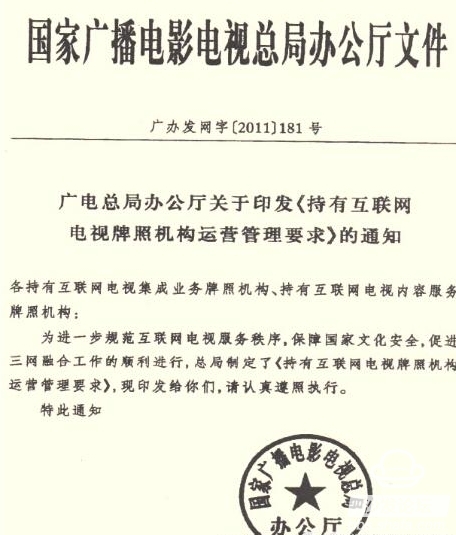
And various new notifications reiterating Circular 181, such as:
On June 23, 2014, according to the "Document No. 181" of the SARFT, the "Internet TV terminal products may not have other access to the Internet and may not be connected to the relevant management system or database of the network operation enterprise" and issued an immediate statement. Close notification of illegal video software download channels in Internet TV terminal products;
On July 4, 2014, Luo Jianhui, director of the Network Audiovisual Program Management Division of SARFT, said that the Internet TV integration service license will no longer be issued;
On July 9, 2014, to ensure that “Document No. 181â€, Internet TV content service agencies should comply with the publicity and management requirements consistent with broadcast television, SARFT requires that cable network companies purchase or integrate smart TV set-top boxes that are developed and installed, etc. Terminals may not install other operating systems other than TVOS;
On July 11, 2014, SARFT issued a document in the "Document No. 181", "At this stage, Internet TV content service is to provide users with video-on-demand and graphic information services." Some OTT TV integrated broadcast control platforms cancel the time-shift and look-back functions of TV stations directly provided in integrated platforms.
For a time, the growth of box sales slowed down, all kinds of illegal programs went offline, video applications were stopped, and third-party application stores faced closure...
Since 2014, all boxes and smart TVs on the market have started shutting down the TV content broadcasting business. Manufacturers have begun to cooperate with seven broadcast control platforms with radio and television licenses, and all major video platforms have also dropped off the original TV version. APP, the channel began to tighten.
Is this the end of things? not at all.
Since the tightening of policies, the solutions that have emerged in the market can be roughly classified into the following categories:
1. Party for Equipment: Use a computer or mobile phone to watch the content and then connect it to the TV;
2, for APP Party: Through technical means, the video site for the flat-panel design APP installed on the TV only;
3, for platform party: Most are illegal, unregulated television broadcast platform.
The first route is more of a self-destructive use of martial arts, and the use of a slightly more expensive smart TV as a display loses the sense of intelligence. Third, the risk is slightly greater. After all, it is against the law. Only the second one has made an empty hole.
However, if this policy adjustment is true, this road will be blocked. The acquisition of the content of all boxes and smart TVs can only be accomplished through the factory-pre-installed system, thus realizing the tightening of supervision.
Is this thing going to end this time? nor.
At 8:33 am on June 10th, 2015, the State Council Legislative Affairs Office posted a notice on the website of the State Administration of Press, Publication, Radio, Film and Television about the public opinions on Internet and other information network dissemination of audiovisual program management measures (revised opinion draft). Public comments are solicited. The deadline for collection is June 30.
The provisions of the new policy on Internet TV are basically the same as those in Document 181.
But there are 2 new rules:
First, TV stations at or above the city level can apply for Internet TV content service licenses. Originally, only 14 TV stations at or above the provincial level had OTT content service licenses. It appears that the range of content service licenses will increase.
Second, TV stations at or above the provincial level can apply for integrated service licenses, but the national market will not allow many OTT integrated broadcast and control licensees, and the existing seven companies are already too many. According to the speech of the Chief Executive, where are the capabilities? There may be dynamic management of Internet TV licenses, and licensees who do not meet the requirements may be delisted. A well-performing TV station may obtain a license. (The goldenest integrated broadcasting licensee has introduced a competition mechanism. The game between the seven princes and the forces behind them is also a very full story. It will be discussed in detail next time.)
In addition, the most important part of the New Deal is that the new mobile video policy will be introduced, and that commercial video websites are ineligible to apply for content licenses and are not eligible to apply for integrated broadcast control licenses, and have now provided commercial video sites for mobile video services.
Once the policy is implemented, commercial video website mobile video APP will face the destiny of all the rest, all the suspension. (I do not scare me when I study)
It should be noted that mobile video on commercial video websites has maintained rapid growth in recent years, with mobile traffic accounting for 50% and 60%, and commercialized revenue accounting for 40% (Youku).
So, you see, radio and television have always been a monopoly market, and the real storm may be brewing. So, and listen to the Lei Feng network reporter next time decomposition. 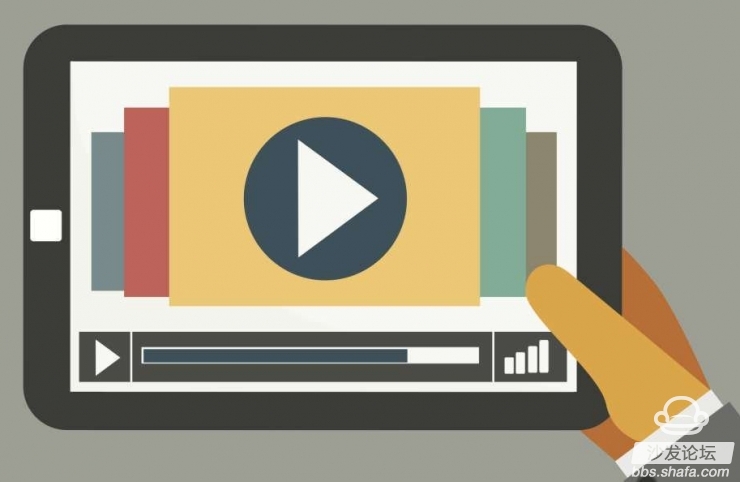
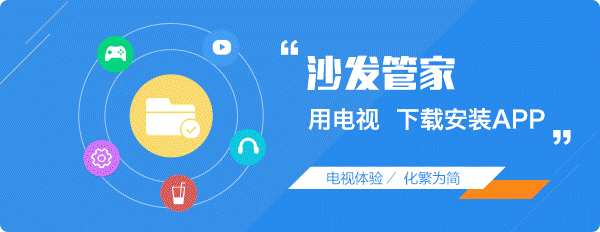
This content is copyrighted exclusively by SofaNet. Welcome manufacturers to further exchanges and cooperation with us to create more in-depth product reports.
Smart TV box recommended to install sofa butler, download address: http://app.shafa.com/
Sofa Net is an Internet technology company specializing in smart TVs and boxes. It owns popular products such as sofa butlers, sofa tables, and sofa forums. It has been committed to providing high quality application resources for smart TV and TV box users and active community exchanges. And authoritative evaluation of smart TV products.
December 16, 2020